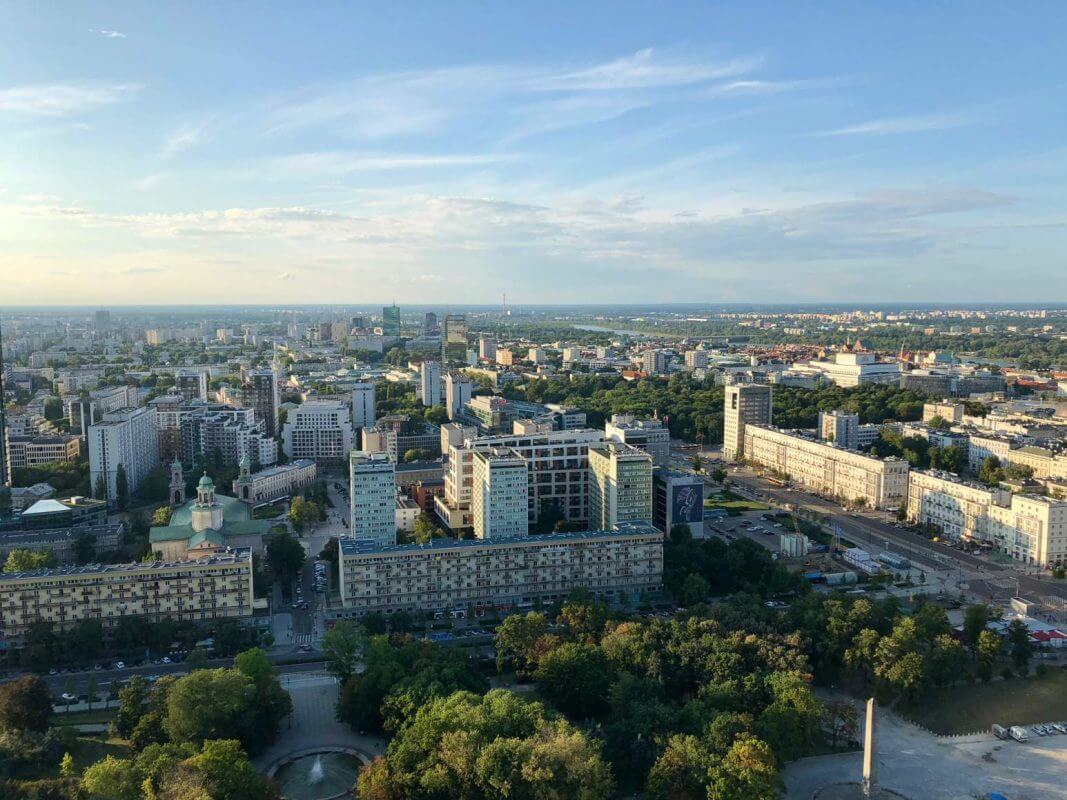
Top things to do in Warsaw: The perfect Warsaw itinerary
Capital of Poland since the late 16th century, the historic city of Warsaw in eastern Poland has not always had a lot of love. Devastated by the Nazis in World War II, and one of the capitals of the Soviet Bloc for much of the 20th century, it has always played second fiddle to the southern city of Kraków in the world’s attentions. But modern Warsaw is a delight to visit, brimming with history both ancient and modern. Wondering what are the best things to see in Warsaw? If you are considering a trip to the Polish capital, begin compiling your Warsaw itinerary with a look at these 12 top things to see and do in the city.
- 1. Take a communist bus tour
- 2. Explore Warsaw’s Old Town
- 3. Admire the Royal Castle
- 4. Take a cruise on the Vistula River
- 5. Check out the view from the Palace of Culture and Science
- 6. Learn the tragic history of the Warsaw Ghetto
- 7. Experience a bygone age at the Museum of Life Under Communism
- 8. Eat your fill of traditional pierogi
- 9. Challenge your brain at the Copernicus Science Centre
- 10. Learn about Marie Skłodowska Curie in the heart of the New Town
- 11. Explore the world of Chopin, Warsaw’s musical legend
- 12. Admire the modern business district as Warsaw looks to the future
- Where to stay
- Where to eat
- Map of Warsaw
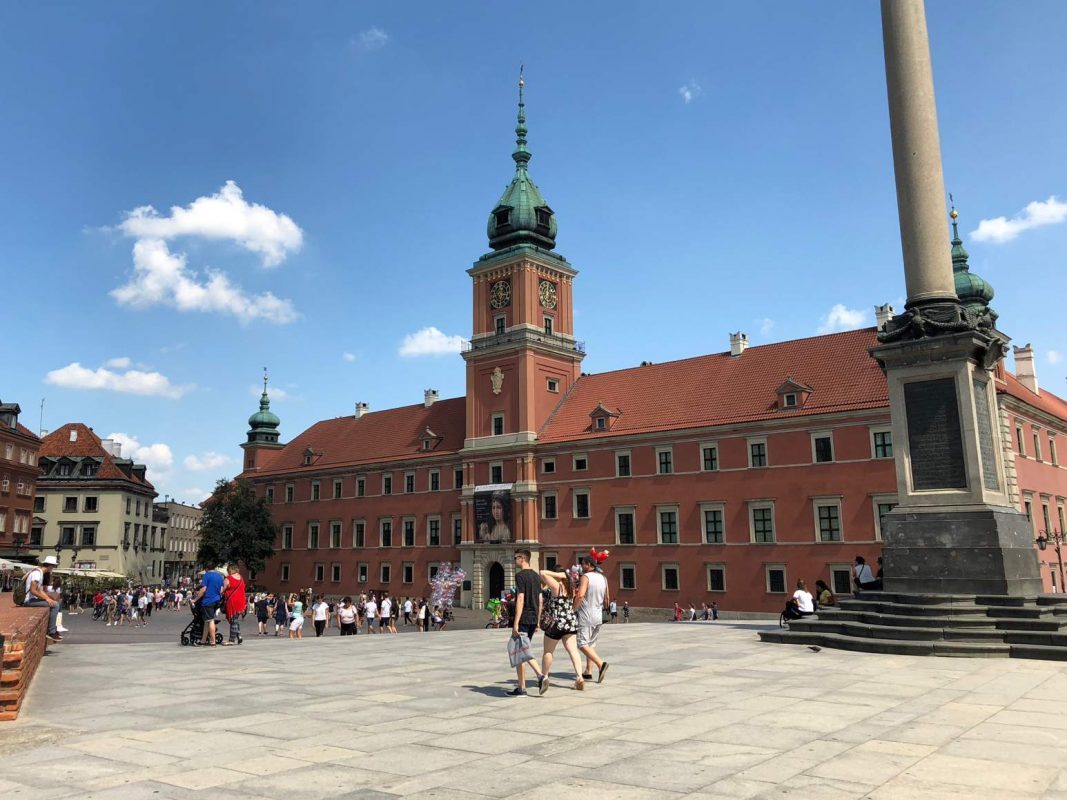
1. Take a communist bus tour
One quirky way to get your bearings in the city is to take a tour in a replica Communist bus. The buses, built in the 1990s to 1950s specifications, are run by Adventure Warsaw, and are a great way to get an overview of Warsaw and its history before striking out on your own.
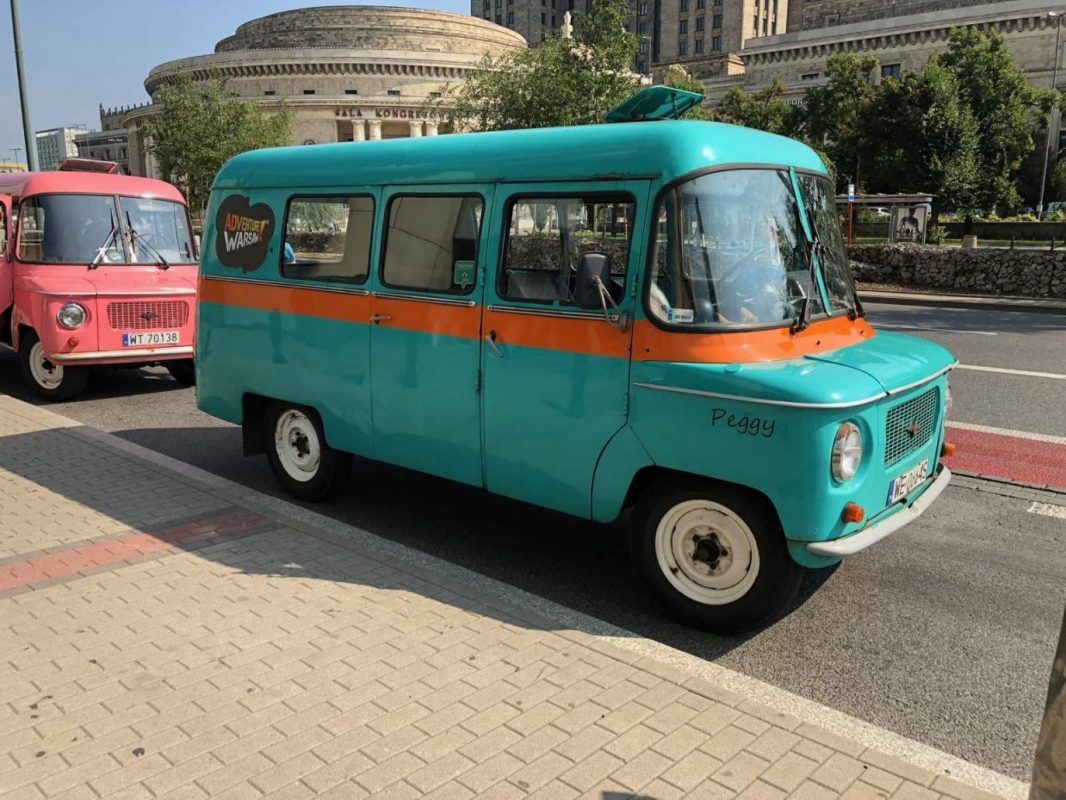
2. Explore Warsaw’s Old Town
Warsaw’s old town is one of the newest in Europe. Razed to the ground by the Nazi occupiers in August 1944 (they took exception to the people of Warsaw’s decision to fight back in the Warsaw Uprising of the same month – check out the excellent Warsaw Uprising Museum to learn more), the city lay in ruins – but not for long. Painstakingly rebuilt from memories and photographs, many of the most significant buildings were almost entirely reconstructed to their original design, and the area retains a medieval feel with its cobbled streets and brightly painted buildings. Today it is one of the most popular places to see in Warsaw.
Check out the historic Market Square with Warsaw’s very own Little Mermaid statue – a rather more pugnacious version than her Copenhagen counterpart with sword and shield, she has become the symbol of the city. Visit the magnificent Gothic St. John’s Archcathedral, with its distinctive stepped vaulted roof; outside the cathedral is a stone commemorating 1000 years of Christianity in Poland from 966AD to 1966. Or simply wander the streets and soak up the atmosphere; the old town may have been rebuilt, but because of this the visitor can enjoy the splendour of the buildings as they would have been back in the Middle Ages when they were new.
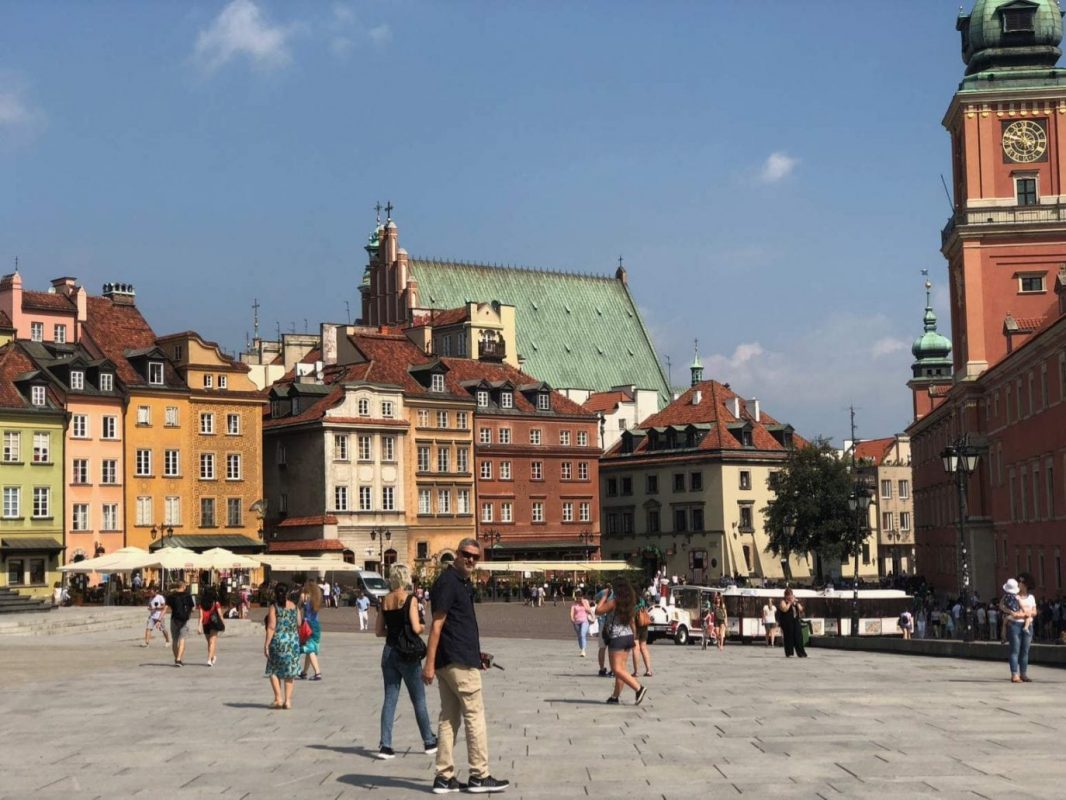
3. Admire the Royal Castle
Warsaw’s Royal Castle, on the edge of the Old Town, is another building which was rebuilt after the Second World War. Fortunately, though, the people of the city anticipated the arrival of the German forces and many of the priceless contents were hidden safely away and still remain today, including the stunning gilded throne and a magnificent room full of Canaletto paintings, which allow the visitor to get truly up close to these masterpieces. But the Castle itself has also been lovingly restored to its former glory; beautiful parquet floors take the visitor around the royal apartments, including a ballroom to rival anything at Versailles with its glittering mirrors, golden ornamentation and spectacular ceiling mural, repainted as close as possible to the original by a modern artist. On the ground floor, the palatial apartments give way to a series of more castle-like rooms containing exhibits of crown jewels and an incredible collection of Rembrants.

4. Take a cruise on the Vistula River
Warsaw’s river is surprisingly undeveloped for a capital city. Although wide, it is shallow and difficult to navigate, so the only boats navigating these waters are smaller craft, making a river cruise a wonderful way to relax and enjoy the leafy river banks and city skyline beyond. We cruised with Po Wiśle, which has luxurious boats with panoramic windows and light refreshments on sale.
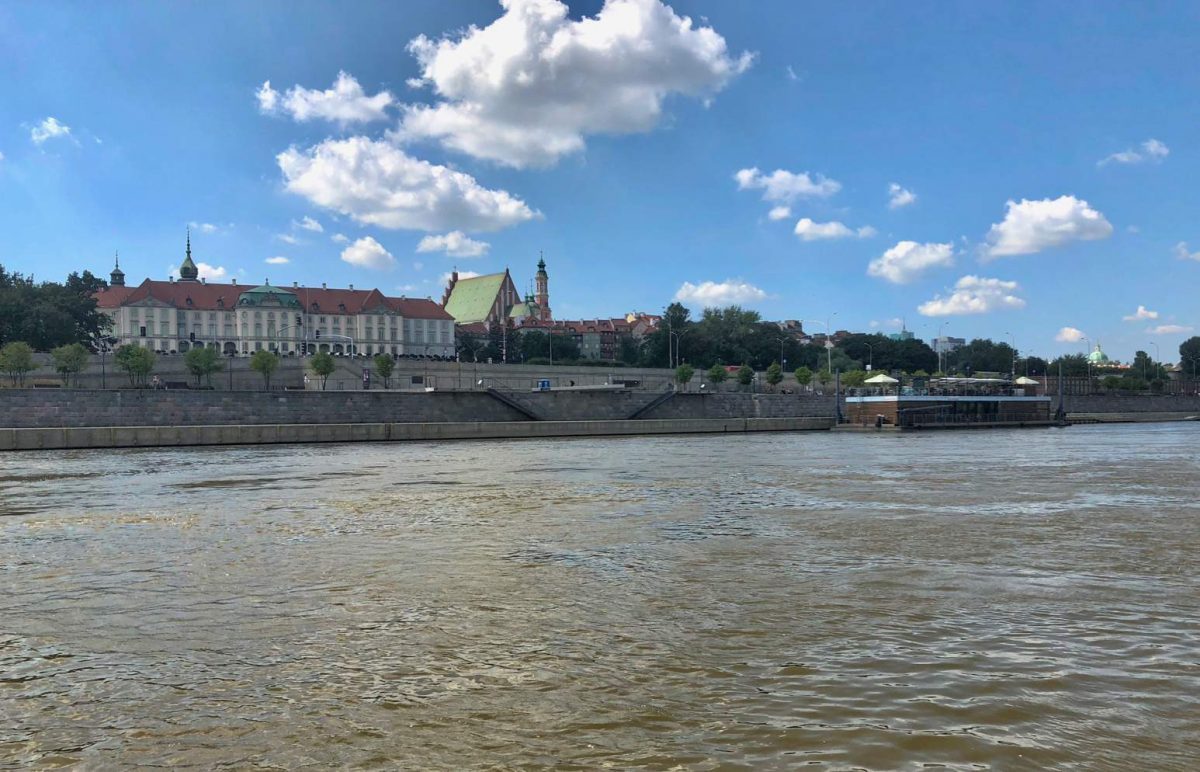
5. Check out the view from the Palace of Culture and Science
Known locally, with a healthy dose of irony, as Stalin’s Gift, the Palace of Culture and Science is hard to miss. This 1950s skyscraper, built in the triangular “birthday cake” style so beloved by the Soviet dictator, was presented to the city of Warsaw by the man himself, ostensibly as a gift, but in reality as an unavoidable reminder of who really ran the country during the Communist era. You don’t refuse gifts from Stalin, but the people of the city took matters into their own hands and decided that if they had to build it, they would build it bigger and better, and the building standing on this site today is twice the height of the original plan. Housing theatres, cinemas and many other treasures for the enjoyment of Warsaw’s citizens, the skyscraper is a fine example of communist might with its awe-inspiring marbled halls and Soviet-style statues. Take the elevator to the viewing gallery to see the inside of the Palace for yourself; there are spectacular views from the top to the Old Town and river in the distance, as well as the mini-Manhattan of Warsaw’s new business district as it grows by the day. Sixty years on, the Palace of Culture and Science is still the tallest building in the city – but not for long.

6. Learn the tragic history of the Warsaw Ghetto
It’s impossible to come to Warsaw and ignore the legacy of World War II. At the outbreak of war there were over 400,000 Jews living in the city, and the Nazi invaders were quick to take them under their direct control, creating the Warsaw Ghetto in late 1940. The ghetto, in the Muranów district of the city, covered a vast area but not vast enough for the number of inhabitants, who were housed at an average of more than 9 people to a room.
Some 92,000 Jewish residents died of starvation and disease in the Ghetto, while more than 300,000 perished by gas or firing squad at the concentration camps, mainly the camp at Treblinka to which some 250,000 Ghetto residents were dispatched en masse in summer 1942. In 1943 the remaining residents began to fight back, culminating in the Warsaw Ghetto Uprising in late April, after which the remaining Jewish residents were either killed or transported to concentration camps.
The Museum of the History of Polish Jews (POLIN) stands within the old ghetto district, which has not been rebuilt and today houses more modern buildings. The museum is well worth a visit; allow at least 2 hours. Outside the museum is a monument to Polish Jews and to the Warsaw Ghetto Uprising.
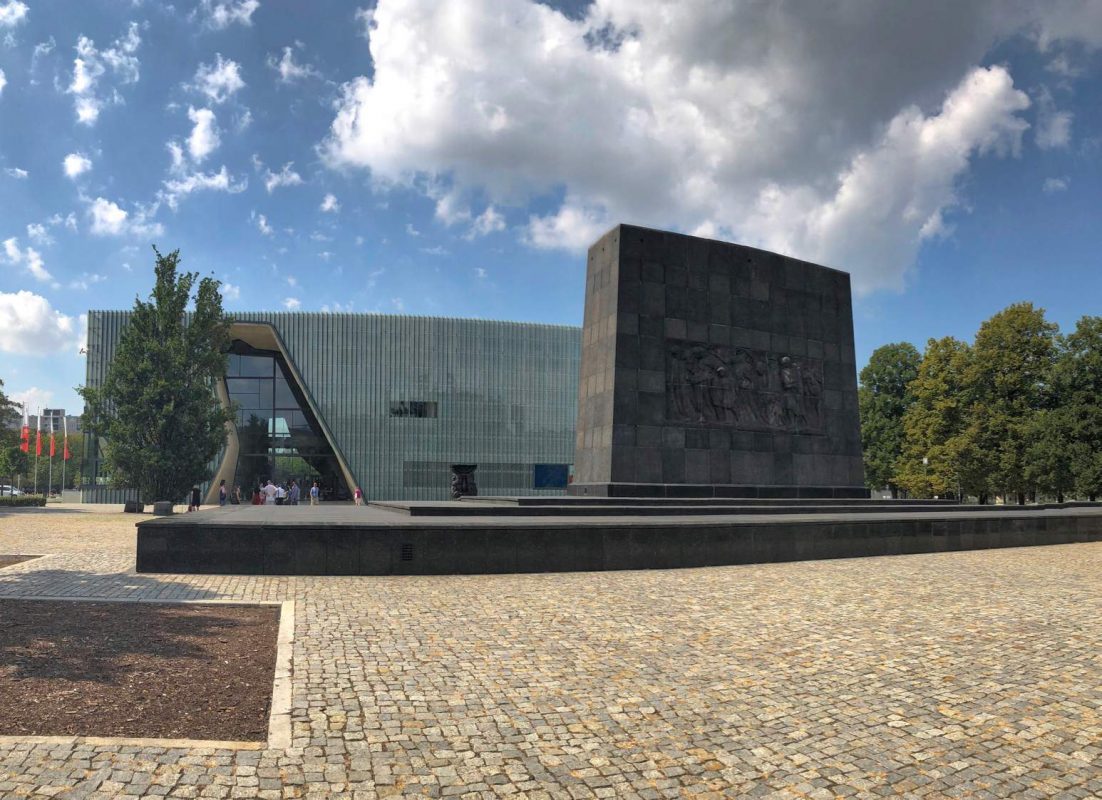
7. Experience a bygone age at the Museum of Life Under Communism
After the conclusion of World War II, Poland found itself on the eastern side of the Allied divide, and almost 5 decades of Communist life began. Communist buildings are still very visible in the city, but communist life itself has all but completely disappeared.
For a taste of life in the 1970s and 1980s, and a step back in time, visit the Museum of Life Under Communism (Czar PRL) in the Praga district east of the river. This small museum, spread across two rooms in an abandoned factory, lovingly assembles communist memorabilia to recreate a home and office, as well as displays of homeware, sporting equipment and many other aspects of communist life. Westerners who grew up during this period may recognise more than a few of the items on display, but many more are unfamiliar to anyone who didn’t live in the Soviet bloc. For those who are too young to remember the fall of the Berlin wall, the museum is an excellent way to get a taste of what life was like when Poland was just a satellite of the Soviet Union.
The museum is a little hard to find; take trams 3, 6, 22 or 26 to Bliska or Gocławska. The museum is tucked down a side street but is well signposted if you are looking in the right place!

8. Eat your fill of traditional pierogi
International foods dominate in modern-day Poland, but for a taste of real Polish cuisine, check out the ubiquitous pierogi, small dumplings traditionally made with minced meat, sauerkraut or local cheese and potato. Pierogi can be found in many restaurants, but especially in the Old Town where specialist restaurants such as Gościniec and Zapiecek offer a chance to sample this slice of Polish life! Wash your pierogi down with a glass of Polish beer for that authentic experience…
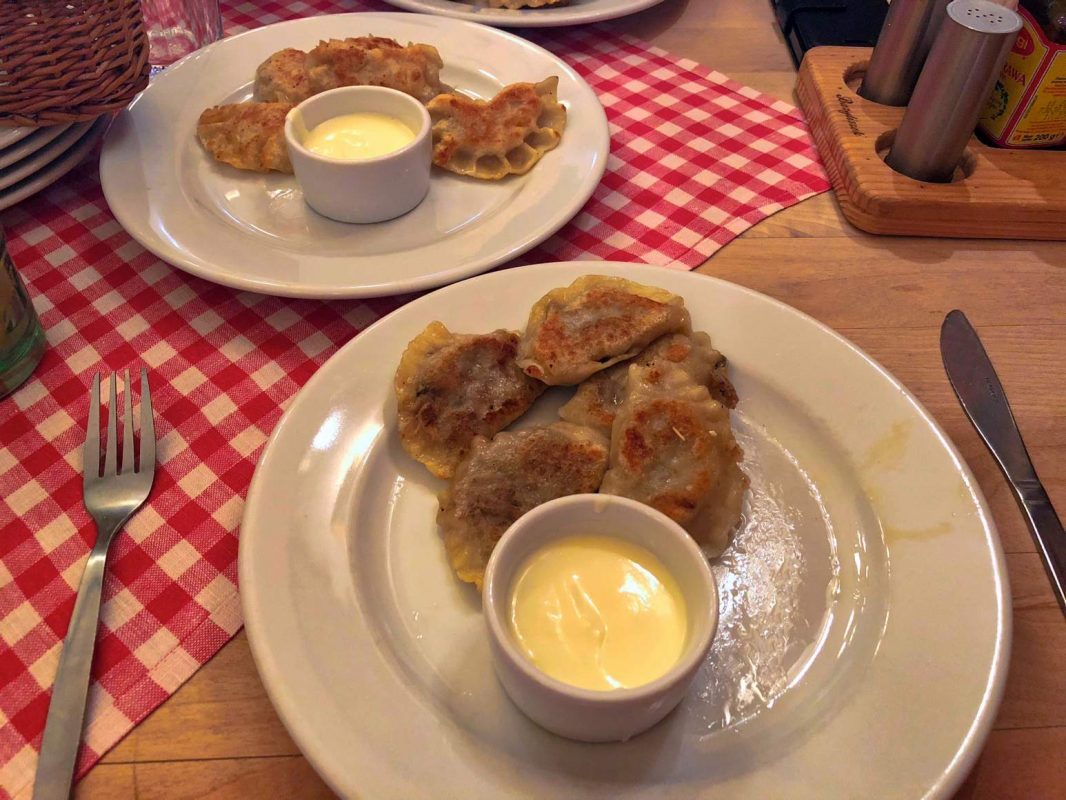
9. Challenge your brain at the Copernicus Science Centre
The world-class Copernicus Science Centre is a great place to get a break from the sightseeing. Suitable for all ages, but especially children and teenagers, the museum opened in 2010 and today houses interactive science displays on a rotating basis, as well as an excellent section for teenagers away from the hyperactive little kids! Most displays have information and explanations in Polish, English and Russian, although we did find some displays were in Polish only. Well worth a visit if you are of a scientific mindset!
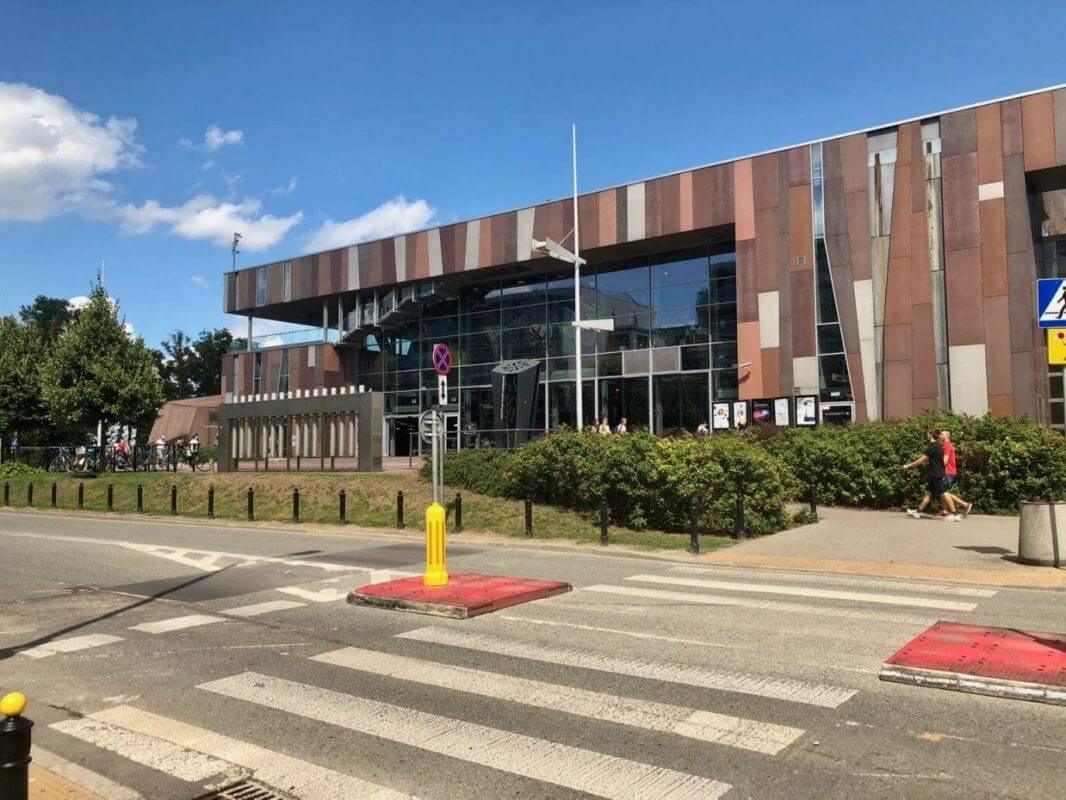
10. Learn about Marie Skłodowska Curie in the heart of the New Town
Perhaps most easily associated with her adoptive home of Paris (her husband, Pierre Curie, was French), the young Maria Skłodowska was in fact born and raised in Poland, a fact commemorated in the name of the chemical element she discovered, polonium. Warsaw’s New Town (in fact dating from the 15th century!) was also rebuilt after WW2 and Marie Curie’s home along with it, but a house on the spot where she lived has been turned into a small museum of her life and work. Check out a recreation of her laboratory and admire photos and instruments from the period.
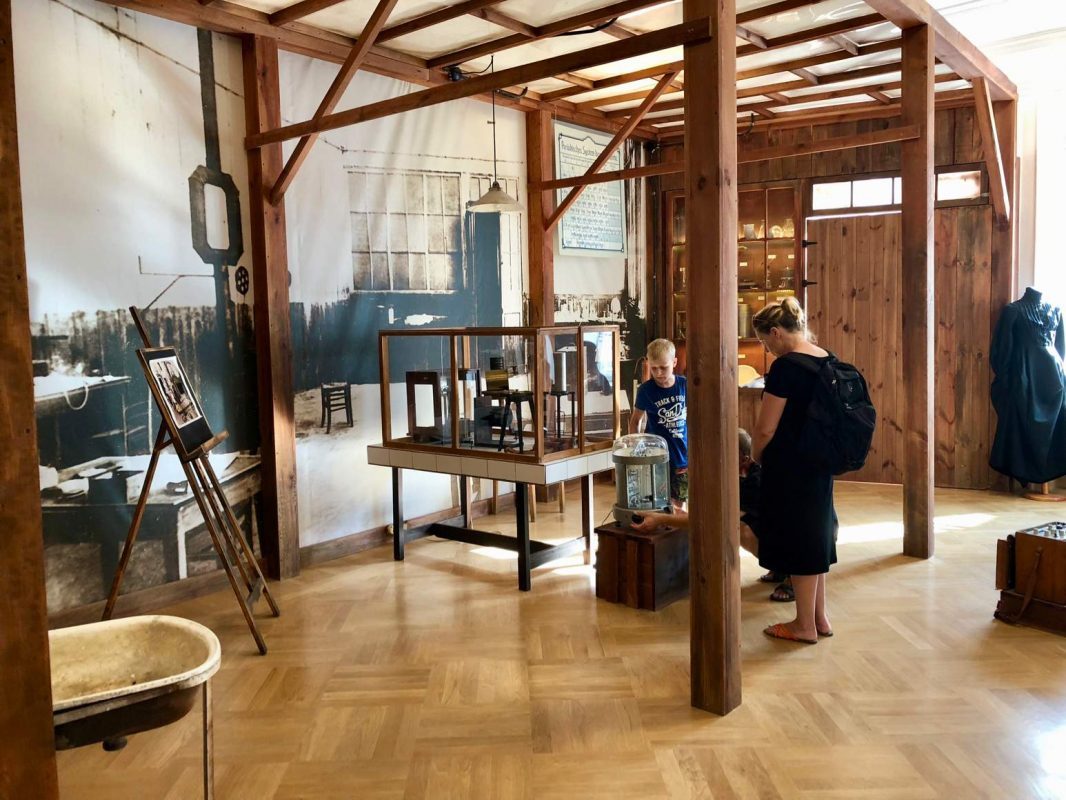
11. Explore the world of Chopin, Warsaw’s musical legend
Fryderyk Franciszek Chopin was born near Warsaw in 1810, and the city is proud of its famous son. Visit Chopin’s birthplace at Żelazowa Wola 46km west of the city, where there is a large park and museum, or check out the Fryderyk Chopin Museum in the heart of the city. On Sunday afternoons in summer, free concerts of Chopin’s music are performed in Royal Łazienki Park; as of summer 2018, performance times are 12 pm and 4 pm, and the concerts run from mid-May to late September.
If you are wandering the city centre, look out for the commemorative benches which play excerpts from Chopin’s classics at the touch of a button!
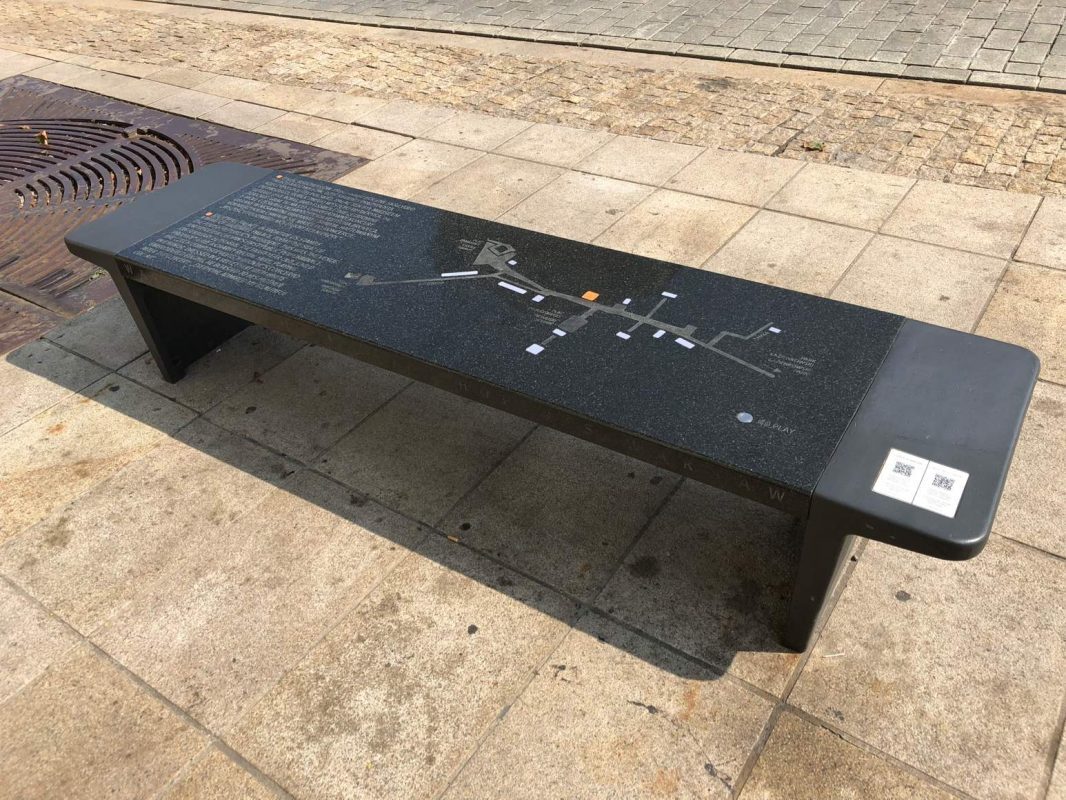
12. Admire the modern business district as Warsaw looks to the future
Warsaw may be steeped in history, but it is also looking to the future. The business district to the west of the city centre is a mini-Manhattan of glass-and-chrome skyscrapers which form a dramatic backdrop to the Palace of Culture and Science which used to dominate the skyline. Plans for the district are ambitious and new buildings are going up all the time; views of the skyline at night are spectacular and showcase the dynamism of the modern city. Whatever your preconceptions of Poland, and of Warsaw in particular, they are sure to be blown away.
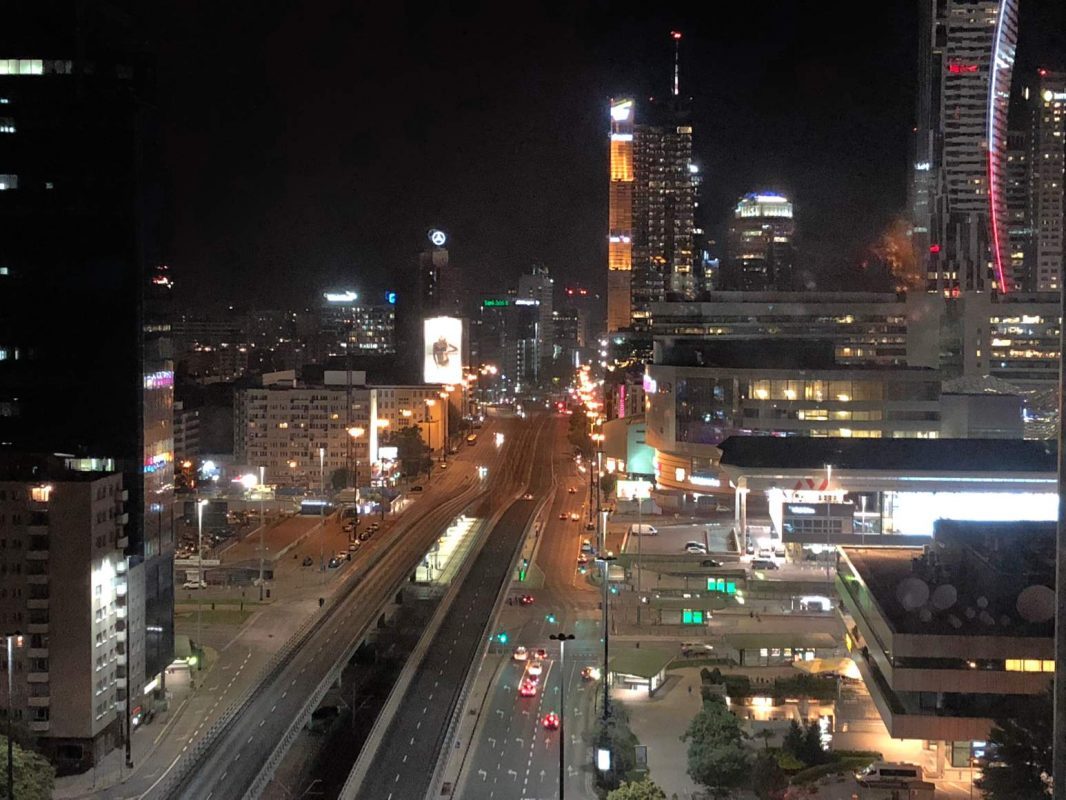
Where to stay
Warsaw has hotels to suit all budgets. We stayed at the Hampton by Hilton Warsaw City Centre, a mid-range hotel with air conditioning and an impressive breakfast spread, located close to the main Warsawa Centrum railway station and with good transport links to the rest of the city.
Where to eat
Poland has an incredible cuisine all its own, and it’s one you shouldn’t miss.
For traditional Polish fare in a historic environment, check out the many restaurants in the Old Town market square. You will pay for the location, but it is hard to beat.
For a local gem, visit the Kafka Café (Kawiarnia Kafka) close to the Copernicus Science Centre. This relaxed coffee shop offers delicious filled sweet and savoury pancakes and the fresh fruit lemonades are to die for! The café also has a wide range of books, magazines and board games to while away an afternoon if you are in no hurry to move.
Getting around
Warsaw has an excellent public transport system, made up of buses, trams and a limited (but ever-expanding) metro system. Prices are comparatively cheap – an adult ticket to anywhere in the city cost approximately $1.20 in summer 2018. I found the Warsaw Public Transport Pro app invaluable for finding my way around; although not free, it is very low-cost and well worth the investment.
Map of Warsaw
None of the activities in this post were sponsored; we paid our own way around the city, and any recommendations are personal and independent.
Want to discover more of Eastern Europe? Check out these posts for more inspiration!
- Chernobyl tours from Kiev: Is Chernobyl safe to visit?
- Kiev metro: How to use it, and the stations you MUST visit!
- What to do in Kiev in winter: The perfect 3-day itinerary
- The best day trips from Kiev: Visit Uman, central Ukraine
- One day in Tirana: Taking the Kotor to Tirana bus
- What to do in Sarajevo: The abandoned Sarajevo bobsled track
- Top things to do in Sarajevo, Bosnia & Herzegovina
- 4 perfect half day trips from Mostar, Bosnia
- Getting around Warsaw by public transport
- Top things to do in Warsaw: The perfect Warsaw itinerary
Looking to create your own Warsaw itinerary? Pin this post for later!


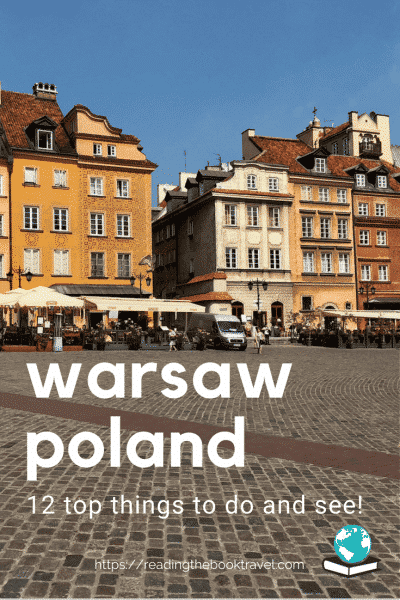
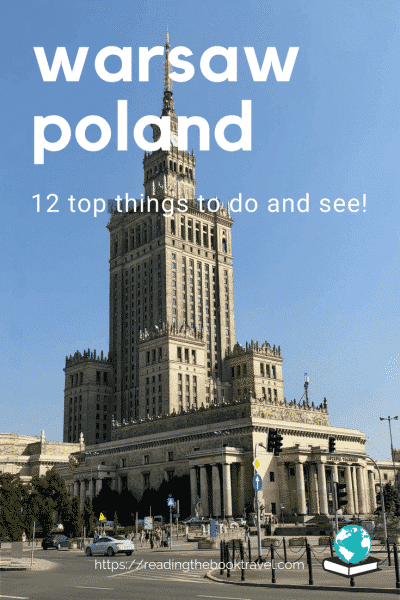
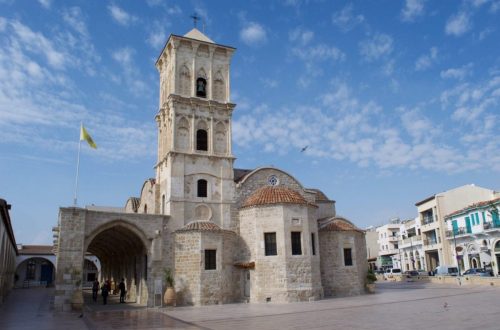
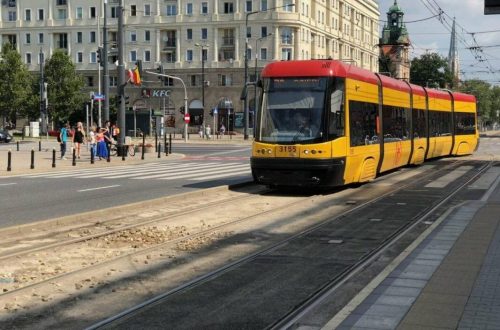
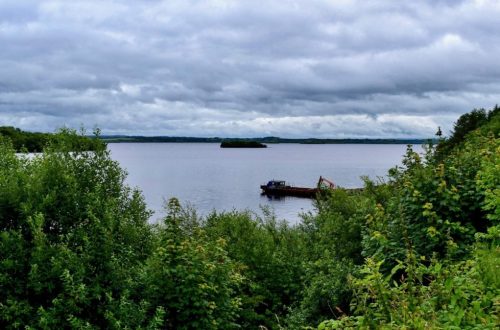
8 Comments
Stacey
I absolutely love those communist buses! They are so cool!!! There’s so much to do in Warsaw!
Jill Bowdery
There really is!
Zenbabytravel
That is such a comprehensive post, you put Warsaw on my list for next year! For some reason I was under the impression that there will be mostly ugly communist architecture, but you certainly presented well the full heritage and all those museums!
Jill Bowdery
Yes, I had that impression too before I went there! There are communist buildings of course, but there is so much more than just that!
Saniya Puri
Warsaw looks amazing, I can’t wait to visit. You have drafted the post really well.. Good job! Thanks for the information.. cheers
Rowena
Hoping to make it to more of Eastern Europe soon, and definitely interested in Poland!
Raksha
I would so love to visit the Royal Castle. It looks fabulous!
john winson
Really a very beautiful place. The pictures are attractive and impressive. The post is giving me serious wanderlust. I would like to visit this place soon.